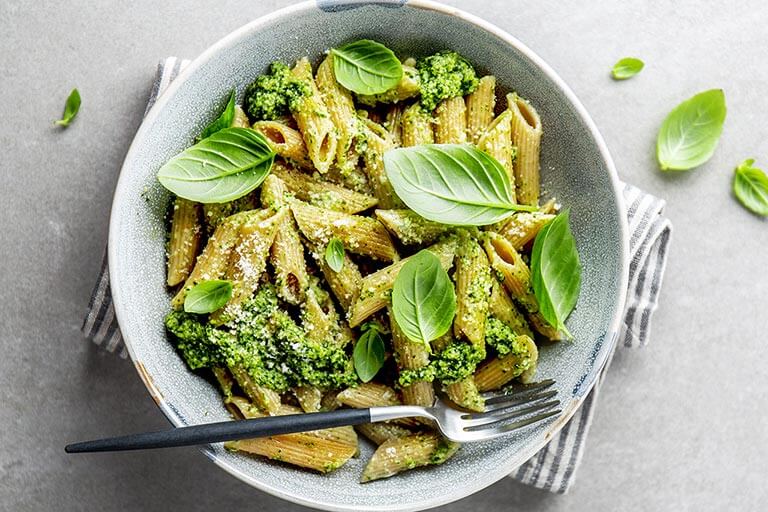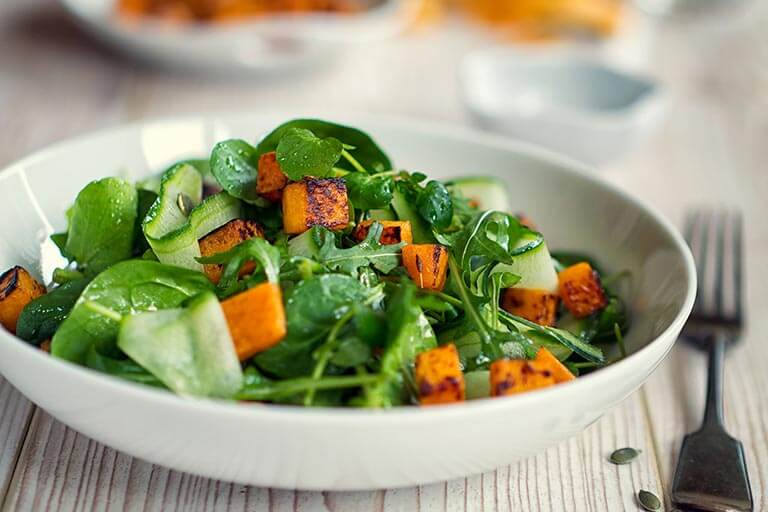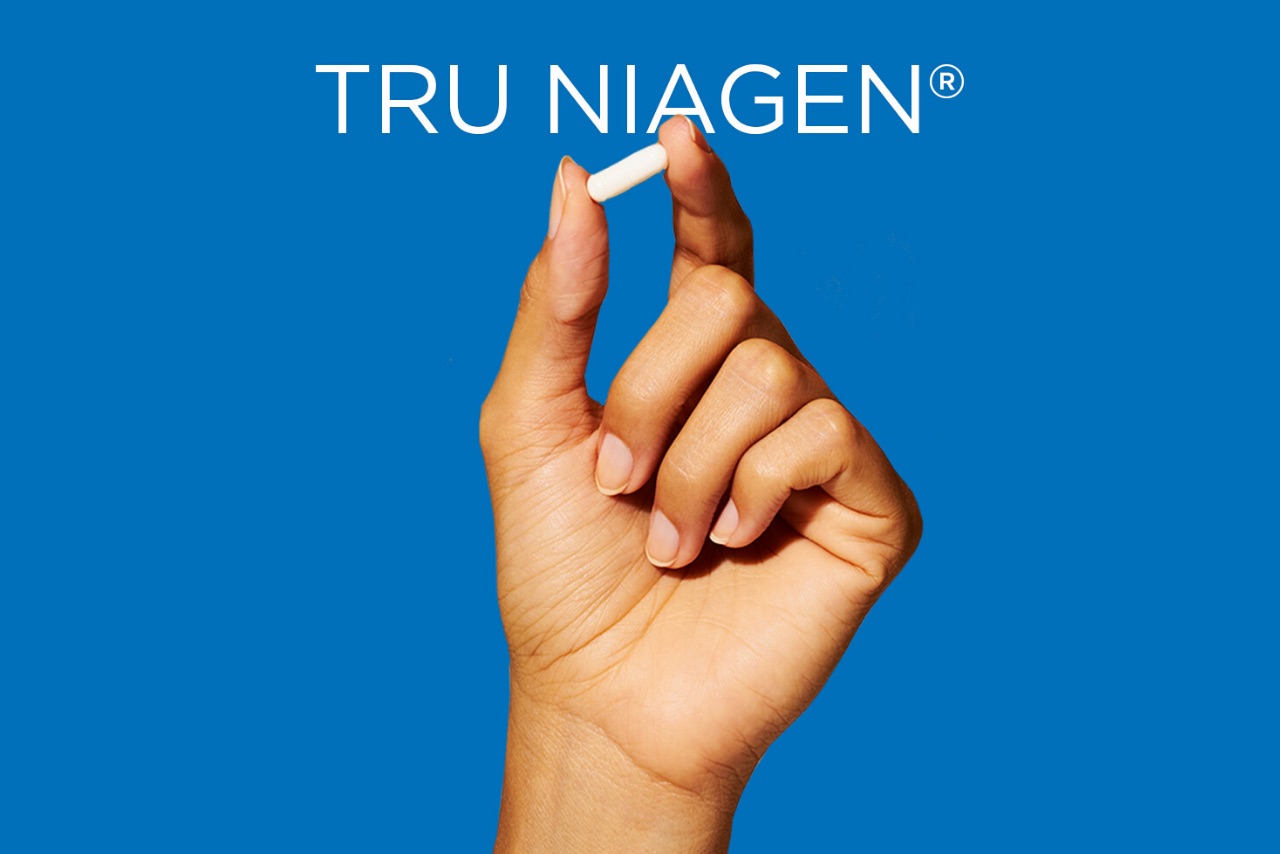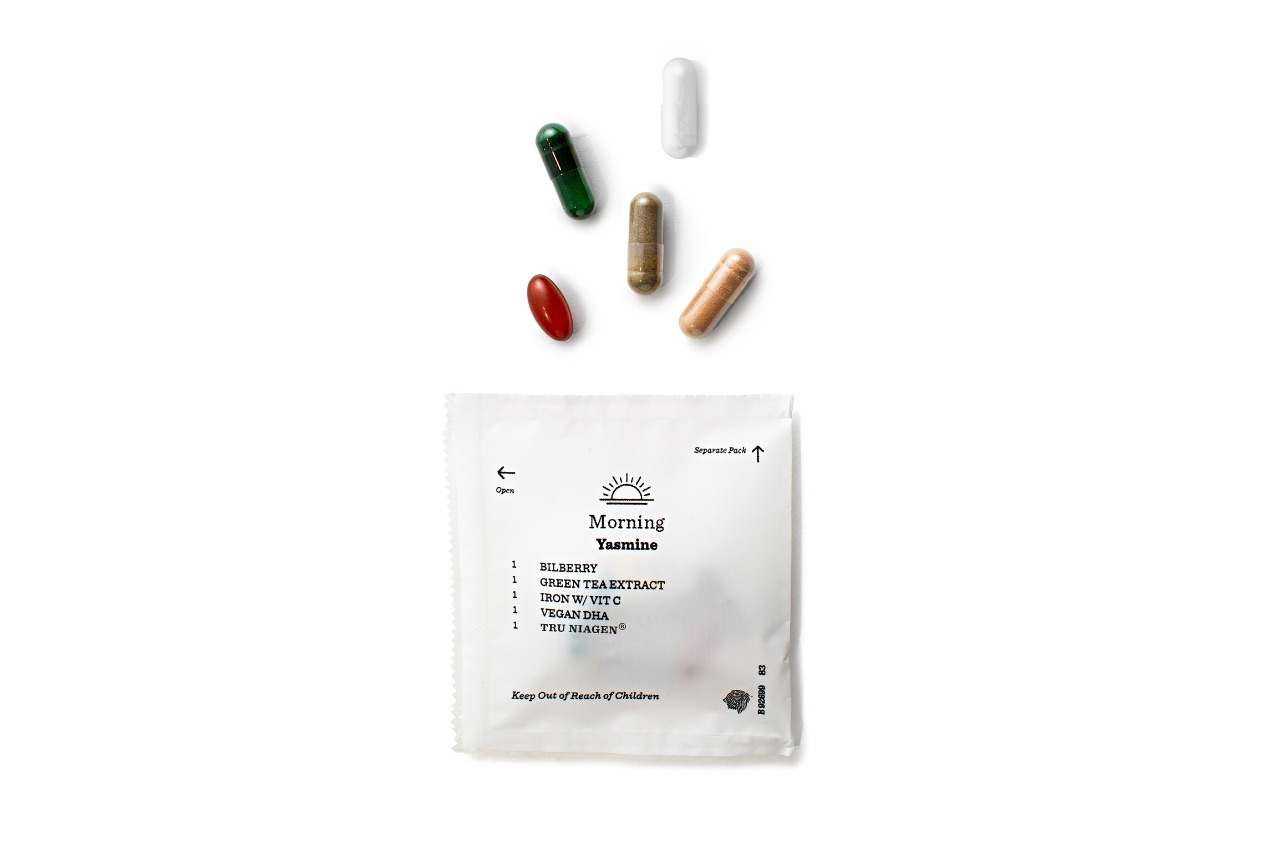As a community pharmacist, I notice patients browsing the vitamin and supplement aisle, oftentimes holding multiple bottles with looks of concentration. When I approach them to offer assistance on choosing a supplement the question is usually the same, “Can I take this with my medication?” I always smile. This is exactly the question I want my patients to ask before adding anything to their current medication regimen.
I know that the majority of my patients are likely using supplements in addition to the medications I dispense them every month. A Mayo Clinic study estimates that 70% of Americans take at least one prescription medication with more than half of Americans taking two, and a recent consumer survey by the Council for Reasonable Nutrition revealed that 75% use a daily dietary supplement.1,2
My goal is to evaluate these combinations and identify any potential interactions between these medications and supplements to ensure my patients are getting the most benefit and fewest side effects from these therapies.
So how do medications and supplements interact within our bodies?
There are two main types of drug supplement interactions:
1. A supplement changes the way a drug moves inside your body.
Drugs have a predictable way of being absorbed, distributed, and eliminated from your body. When a supplement interferes or changes any step in this process, issues can arise with the effectiveness of your drug therapy.
These interactions can require you change the way you take your medications and supplements, such as spacing the time interval between taking your medicine and supplement.3 For example, calcium, iron, and zinc supplements commonly found in multivitamins can affect the absorption of some antibiotics. This interaction makes it difficult for the antibiotic to get into the bloodstream and fight infection. For this reason, your health provider will advise you to take your multivitamin separately from your antibiotic by several hours.4
2. A supplement changes the way a drug acts inside your body.
Supplements can sometimes have an additive or opposite effect of your medications resulting in an increase of certain side effects or ineffective drug therapy. These types of interactions can sometimes require additional monitoring to ensure you do not experience harmful side effects and receive the full benefit of your medication and supplement regimens.3 For example, Vitamin K is known to antagonize the blood thinner, Warfarin. Vitamin K is commonly found in multivitamins and in the foods, like leafy green vegetables. Patients taking warfarin have to closely monitor their Vitamin K intake, but are still able to take multivitamins and enjoy foods containing Vitamin K.5
So how do you safely add a supplement to your current medication regimen? Start a conversation with your health care provider about any medications and supplements you are currently taking or any changes you might want to make to your medication and supplement regimen.
A healthcare professional is more accessible than you realize. Call your local pharmacist with any questions you might have about interactions between your current medications and supplements. If you are looking to start a supplement regimen, Persona’s personal assessment takes into account your health, lifestyle, and medications by analyzing 850 potential prescription drug interactions before making any supplement recommendations. Persona nutritionists are also available to chat about the supplements they provide.
A conventional medication regimen should never discourage you from adding supplements to help achieve your health goals. Drug supplement interactions are manageable with the help of your healthcare provider, but communication is the key.
When someone takes a prescription medication – whether it’s something they’re on indefinitely or something they’re taking short term – that prescription medication may change the way the body absorbs or utilizes certain micronutrients, raising overall levels, especially if the person is also supplementing with a daily vitamin. And, on the flip side, the daily vitamin, herb or other supplement may impact the effectiveness of the medication.
These are called drug-nutrient interactions (DNIs) and they play in important part in overall wellness. DNIs can have a lasting impact on a person’s health and wellness, but they are rarely discussed.
As a community pharmacist, I’m on the front lines of dispensing prescriptions and seeing someone checkout with a daily multivitamin in their hand; I always ask, “did you check with your doctor to make sure there aren’t any interactions.” And, 100% of the time, I get the response “no, I didn’t realize I should.”
Many times, individuals will stop taking their prescription medication because they experience increased fatigue or other issues. They don’t realize their prescription medication can interact with their over-the-counter vitamins or supplements. That’s why it’s critical for people to check with their health care practitioner or use a personalized vitamin program that cross-references DNIs (like Persona) before adding a supplement to their routine.
As a pharmacist and medical advisory board member for Persona Nutrition, I’m sharing the most common drug-nutrient interactions I see on a regular basis to help keep consumers safe.
Common negative interactions between drugs and supplements:
- Warfarin (Coumadin) and Omega-3 Fatty Acids – Fish oil and other Omega-3 supplements may increase blood thinning to dangerous levels when taken with prescription blood thinners.
- Oral Contraceptives and St. John’s Wort – This botanical supplement may decrease the effectiveness of birth control pills.
- Oral Contraceptives + Green Tea Extract – Certain oral contraceptives can decrease caffeine clearance in the body by up to 65%, which can increase the effects of caffeine in green tea. 10, 11 To avoid an additive effect, Green Tea Extract supplementation should be avoided in those taking oral contraceptives.
- Oral Contraceptives + Garlic – Garlic can enhance the metabolism of certain hormones by amplifying the enzymes responsible for clearing this class of drugs. Garlic should be avoided with oral contraceptives to ensure the drug is not cleared too quickly from the body, potentially make the medication less effective.12
- Antibiotics (Cipro, Doxycycline, Tetracycline, etc.) and Mineral Supplements – Mineral supplements can bind with some antibiotics, reducing their effectiveness. If you regularly take a mineral supplement (like Calcium, Magnesium, Zinc, Iron, Copper, or Manganese), be sure to ask your doctor, pharmacist, or nutritionist if you need to stop taking your mineral supplements while on the antibiotics.
- Prozac (Fluoxetine) and L-Tryptophan – This amino acid supplement may cause undesirable side effects when taken along with the antidepressant, Prozac.
- Taking a statin? You will want to add Coenzyme Q10 (CoQ10) because the average blood concentration of CoQ10 in blood plasma decreases within 30 days by an average of 50 percent.24
- Taking a blood pressure medication? You should know that taking an iron supplement two hours before or after taking this type of medication can decrease its absorption rate.
- Taking a synthetic thyroid hormone? Look at your supplement facts to be sure you’re avoiding soy, iron and calcium. Soy, iron and calcium, if taken within four hours of taking a synthetic thyroid hormone, may reduce the absorption rate.
- High blood pressure medications
- Antihypertensives + Garlic – Garlic has been shown to lower blood pressure and may have interfere with the metabolism and clearance of certain types of antihypertensives. For those taking antihypertensives, garlic supplements may have an additive effect with these prescription drugs and should be avoided. 8,9
- Diuretics + Fish Oil – Diuretics help rid the body of salt and extra fluid by increasing urination. Diuretics are commonly used in those with high blood pressure or heart failure. Because diuretics can decrease blood pressure, when combined with supplements that may also lower blood pressure, diuretics could potentially increase risk for hypotension. 10
- Medications for mood
- Antidepressants + 5-HTP – 5-HTP is a precursor of serotonin. Combining supplemental 5-HTP with antidepressant medications that increase serotonin levels in the brain could theoretically lead to serotonin syndrome, a dangerous overload of serotonin in the brain. Common side effects of serotonin syndrome include headache, confusion, and loss of muscle coordination, but in severe cases result in irregular heart rhythm or seizure. 11,12
- Anxiety medications + Grapefruit – Grapefruit can interfere with certain antianxiety medications by altering enzymes responsible for transporting these medications into the bloodstream and the breakdown of these medications. This results in increased side effects of anti-anxiety medications, like prolonged sedation. 13 Grapefruit should be avoided with antianxiety medications to ensure appropriate levels of medications in the bloodstream.
- Diabetes medications
- Antidiabetic Medications + Ashwagandha – Preliminary evidence shows that ashwagandha root powder can decrease blood glucose. 21, 22 To avoid an additive effect of blood sugar becoming too low, Ashwagandha should be avoided with those taking blood sugar-lowering drugs.
Immunity and DNIs
During cold and flu season, people stock up on immunity-supporting nutrients like vitamin C, vitamin D and zinc. Because dietary supplements – including those for immunity – are readily accessible over the counter, many people don’t even think about speaking with their health care provider before adding them to their daily routine.
The following are three of the most prominent drug interaction concerns among ingredients found in immunity-supporting supplements or therapies:
- Zinc—When taken simultaneously with some medications, zinc can bind with the drug in the stomach and form complexes making it more difficult for the body to absorb the medication. This is a common interaction with thyroid medications and certain types of antibiotics. 6 With zinc containing supplements, it is often important to separate administration from medications by 2 to 4 hours to avoid this type of interaction.
- Vitamin C—Vitamin C may increase estrogen levels by altering the way they body metabolizes the hormone.7 This effect is usually more pronounced with the higher doses of vitamin C commonly found in immunity supplements. This can increase the side effects a patient may experience in particular with hormone replacement therapy or oral contraceptives containing estrogen.
- Immunosuppressive therapy—Immunity supplements may not be appropriate to take with drug therapies that are designed to suppress components of a person’s immune system. Patient’s using immunosuppressive therapies, such as those designed to treat specific types of cancer or autoimmune disorders, should consult their health care provider prior to taking any supplement that may stimulate their immune system. Spirulina is thought to stimulate the body’s immune system.18, 19 Immunosuppressant therapies, commonly used to treat Crohn’s disease and psoriasis, can be less effective if the body’s immune system is activated. Spirulina should be avoided when taking immunosuppressant drugs to ensure effective therapy.
Positive interactions between drugs and supplements:
On the flip side, some supplements can actually work with your prescription med’s to increase their effectiveness, decrease side effects, or replace nutrients that the drugs may deplete in your body. This is, of course, referred to as a “positive drug-nutrient interaction.” Check out the examples below:
- Zinc/Copper with AZT – These minerals may decrease the risk of pneumonia and candida infections in people taking AZT by replacing lost mineral stores.
- Milk Thistle with Percocet – This botanical supplement may decrease the side effects of the opioid pain medication, Percocet (Oxycodone-Acetaminophen).
- Fish Oil with Citalopram – The Omega-3 Fatty Acids in fish oil (and other EPA/DHA supplements) may enhance the antidepressant effects of this common SSRI.
Vitamins, minerals, and botanical supplements can be a great pathway to optimum health if taken responsibly. Always tell your doctor about the supplements you’re taking, so he/she can take that into consideration when prescribing your medications. Take your list of supplements with you to your next doctor’s appointment, and discuss it with him/her. And if in doubt, ask your pharmacist or a nutritionist about specific drug-nutrient interactions.
So don’t rule out the Omega-3 supplements you’ve been reading about. These essential fatty acids are great for decreasing chronic inflammation, promoting healthy cholesterol and triglyceride levels, and supporting the health of your cardiovascular and nervous systems. But if you take prescription medications, please check with your doctor, pharmacist, or nutritionist before adding Omega-3’s (and other dietary supplements) to your daily routine.
Big Data
So, where should you go to check whether your prescription medication has any interactions with supplements? My number one answer is your health care practitioner. Your doctor has electronic medical records (EMRs) – big data – at his or her fingertips and can easily scan for potential interactions. In addition, rely on your local pharmacist as they too have access to databases that can quickly and easily scan for areas of caution. In my opinion, pharmacists are one of the most underused and most valuable resources for you.
You’re in Good Hands
One of the reasons why I’m excited to be a medical advisory board member of Persona is because the company is using big data to inform dietary supplement recommendations. Did you know that Persona can quickly and easily cross-reference more than 650 possible drug-nutrient interactions? It doesn’t and shouldn’t take the place of your health care practitioner, but it will put you on the right, healthy, path from the start.

















